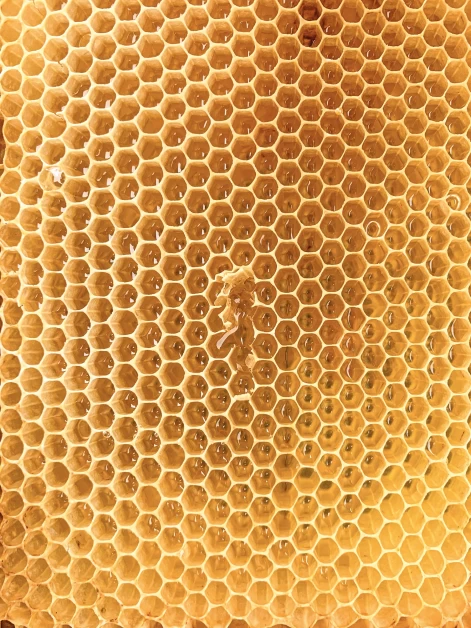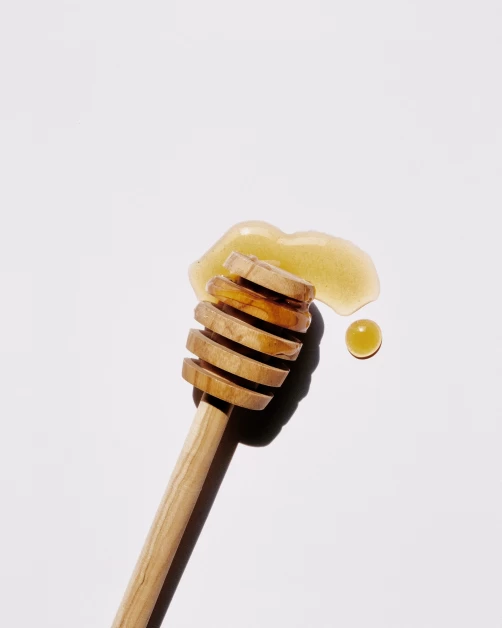Table of Contents
Do you know what Manuka honey is and why it is so good for your pet? If not, you are missing out on a natural and effective way to enhance your pet’s health and beauty. Manuka honey is not just a sweet treat, but also a powerful remedy that can help your pet in various surprising ways, both inside and out.
What is Manuka Honey?
Manuka honey is a type of honey that comes from the nectar of the Manuka tree, which grows in New Zealand and Australia. It has a dark color, a rich flavor, and a thick texture. But what makes it so special for your pet?
Manuka honey has some unique properties that make it different from other types of honey. It has a high level of antibacterial activity, which means it can kill harmful bacteria that cause infections and diseases. It also has anti-inflammatory, antifungal, and antiviral properties, which means it can reduce swelling, fight off fungi, and prevent viruses from spreading.
These properties are mainly due to a compound called methylglyoxal (MGO), which is found in high concentrations in Manuka honey. MGO is what gives Manuka honey its potency and effectiveness. The higher the level of MGO in the honey, the stronger the honey is.
Internal Benefits of Manuka Honey for Pets
Manuka honey can help your pet’s health in many ways by supporting their immune system, digestive system, and cardiovascular system. Here are some of the internal benefits of Manuka honey for pets:
Immune System
Manuka honey can boost your pet’s immune system by fighting off infections and viruses. The antibacterial, antifungal, and antiviral properties of Manuka honey can help your pet resist common pathogens. The antioxidant properties of Manuka honey can also protect your pet from free radical damage and inflammation.
Digestive System
Manuka honey can promote regular bowel movements, support gastrointestinal health, soothe irritated digestive tracts, and provide nutritional support during recovery. The soluble fiber in Manuka honey helps regulate digestion and prevent digestive issues. The prebiotic effect of Manuka honey nourishes the good bacteria in your pet’s gut, enhancing nutrient absorption and immunity. The anti-inflammatory effect of Manuka honey reduces discomfort and inflammation in the digestive system. And the easily digestible nutrients in Manuka honey can help your pet recover from surgery or illness.
Cardiovascular System
Manuka honey can contribute to cardiovascular well-being in pets by lowering cholesterol levels and reducing the risk of heart disease or stroke. The beta-glucan in Manuka honey helps lower LDL (bad) cholesterol and prevent its absorption into the bloodstream. Lowering cholesterol levels can improve blood flow and prevent plaque buildup in the arteries.
External Benefits of Manuka Honey for Pets
Manuka honey can also help your pet’s skin and coat in many ways by moisturizing, soothing, healing, and enhancing them. Here are some of the external benefits of Manuka honey for pets:
Wound Healing
Manuka honey can accelerate wound healing by creating a moist environment, preventing infection, reducing inflammation, and stimulating tissue regeneration. The osmotic effect of Manuka honey draws out fluid from the wound, keeping it clean and moist. The antibacterial effect of Manuka honey prevents bacteria from colonizing the wound site. The anti-inflammatory effect of Manuka honey reduces swelling and pain. And the growth factors in Manuka honey stimulate new blood vessels and skin cells to form.
Moisturizing
One of the benefits of Manuka honey for your pet’s skin and coat is moisturizing. If your pet has dry skin or a dull coat, you can use Manuka honey to hydrate and nourish them. Manuka honey contains vitamins, minerals, amino acids, and antioxidants that can replenish your pet’s skin and coat with essential nutrients. It can also help retain moisture and prevent dehydration.
Soothing
Another benefit of Manuka honey for your pet’s skin and coat is soothing. If your pet has irritated skin or allergies, you can use Manuka honey to soothe and calm them. Manuka honey has anti-inflammatory properties that can reduce swelling, redness, and itching. It can also help relieve minor wounds caused by infections and hot spots.
Enhancing
Another benefit of Manuka honey for your pet’s skin and coat is enhancing. If you want to make your pet’s fur soft, smooth, and glossy, you can use Manuka honey to enhance and shine it. Manuka honey can help remove dirt, grease, and odors from your pet’s fur and skin. It can also help reduce shedding and dandruff.
To use Manuka honey for enhancing your pet’s skin and coat:
- Apply it directly to the affected area or make a soothing bath for your pet.
- To make a bath, add one cup of Manuka honey to four liters of warm water and stir well. Then soak your pet in the bath for 10 to 15 minutes. Rinse well and dry your pet thoroughly.
- Or simply buy grooming products that use Manuka honey as one of the primary ingredients.
When using Manuka honey for your pet, remember these tips:
- Always consult your veterinarian before giving Manuka honey to your pet, especially if your pet has any medical conditions or is taking any medications.
- Start with small amounts and gradually increase the dosage as your pet gets used to it. Monitor your pet’s response and adjust accordingly.
- Choose plain and unflavored Manuka honey without any added sugars, flavors, or preservatives. Avoid artificial additives that may harm your pet’s health.
- Do not give Manuka honey to puppies or kittens under one year old, diabetic pets, or obese pets. Honey contains a lot of sugar and calories that may not be suitable for these pets.
- Do not give Manuka honey to pets that are allergic to bees or pollen. Honey may trigger an allergic reaction in some pets.
- Monitor portion sizes: While Manuka honey offers numerous benefits, it should be served in moderation. Consult with your veterinarian to determine the appropriate portion size based on your pet’s size, breed, and specific dietary needs.
Manuka honey is a wonderful natural ingredient and an all-rounder that can benefit your pet in many ways. Because of its moisturizing and healing properties, it makes a wonderful ingredient to look out for while choosing grooming products for your pet.
However, Manuka honey is not a miracle cure for everything. It should be used as a complementary therapy along with a balanced diet and regular veterinary care. It should also be used with caution and moderation, as too much of anything can be harmful.
We hope you learned something new about Manuka honey for pets!


